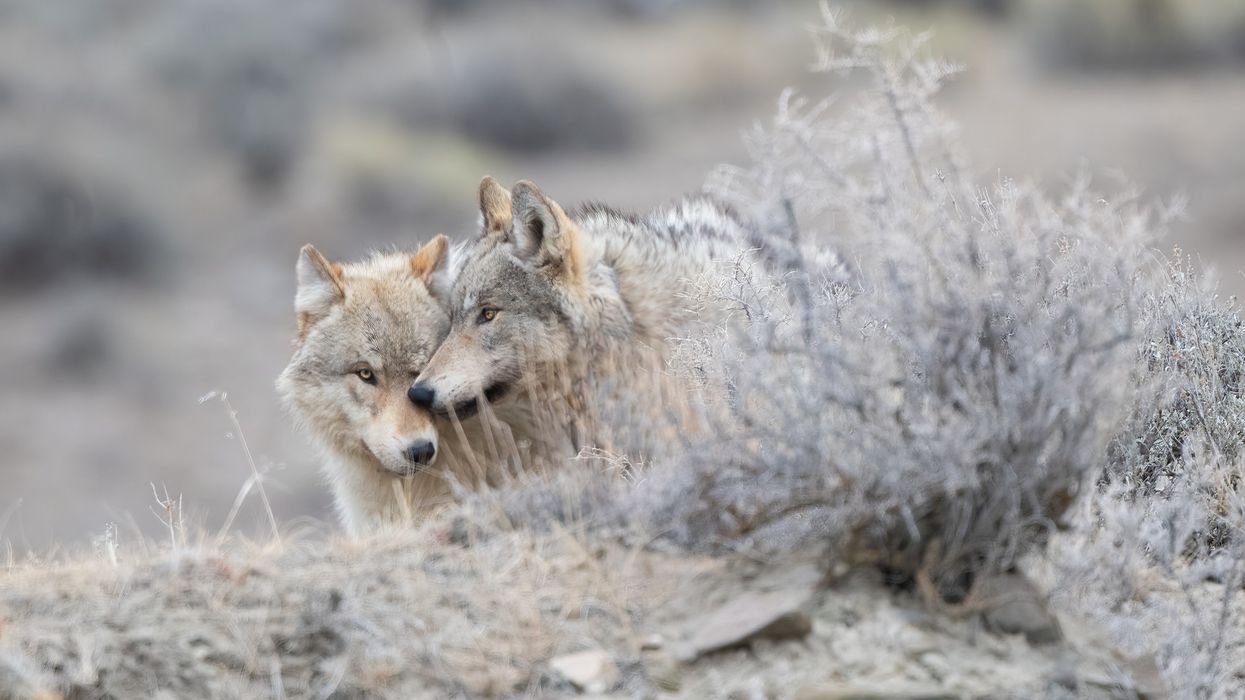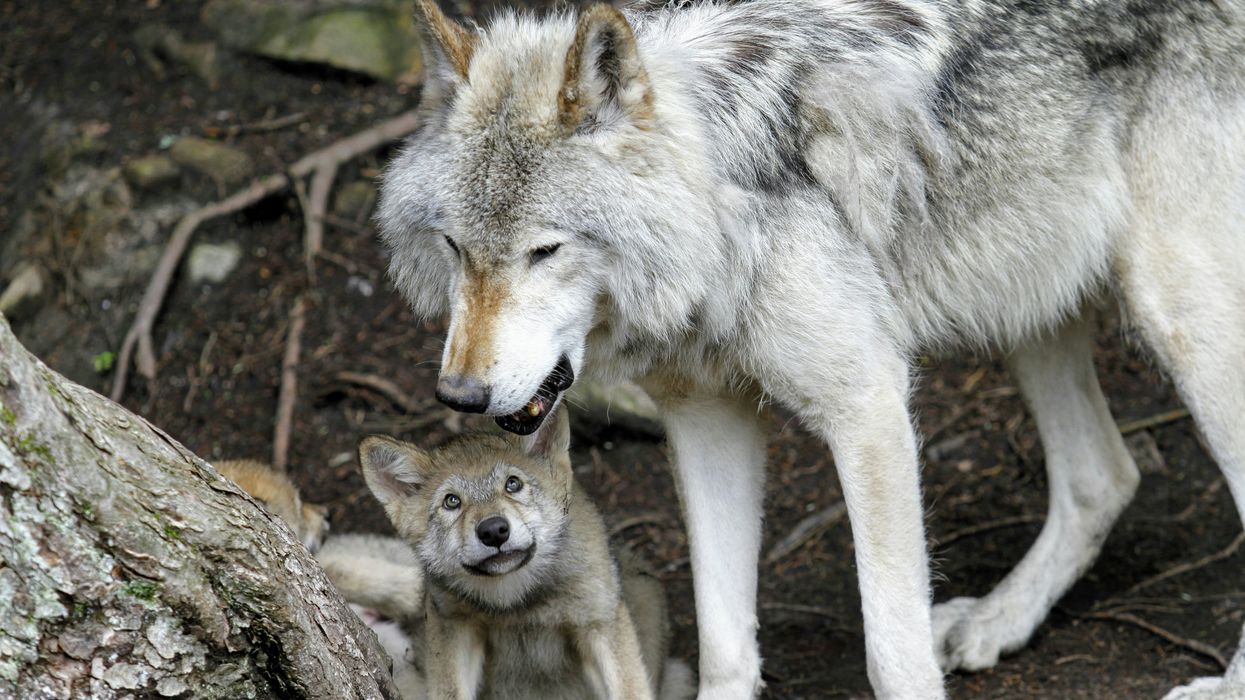"The Biden administration and its Fish and Wildlife Service are complicit in the horrific war on wolves being waged by the states of Idaho, Wyoming, and Montana," declared George Nickas, executive director of Wilderness Watch, one of 10 organizations represented by the Western Environmental Law Center (WELC).
"Idaho is fighting to open airstrips all over the backcountry, including in designated wilderness, to get more hunters to wipe out wolves in their most remote hideouts," Nickas noted. "Montana is resorting to night hunting and shooting over bait and Wyoming has simply declared an open season."
"These states are destroying wolf families in the northern Rockies and cruelly driving them to functional extinction via bounties, wanton shooting, trapping, snaring, even running over them with snowmobiles."
Brooks Fahy, executive director of Predator Defense, another WELC group, pointed out that "these states are destroying wolf families in the northern Rockies and cruelly driving them to functional extinction via bounties, wanton shooting, trapping, snaring, even running over them with snowmobiles. They have clearly demonstrated they are incapable of managing wolves, only of killing them."
KC York, founder and president of Trap Free Montana, also represented by WELC, said that "Montana, Idaho, and Wyoming know that they were let off the hook in their brutal and unethical destruction of wolves even acknowledged as such by the service."
"They set the stage for other states to follow," York warned. "We are already witnessing the disturbing onset of giving the fox the key to the hen house and abandoning the farm. The maltreatment is now destined to worsen for these wolves and other indiscriminate species, through overt, deceptive, well-orchestrated, secretive, and legal actions."
The other organizations in the WELC coalition are Alliance for the Wild Rockies, Friends of the Clearwater, International Wildlife Coexistence Network, Nimiipuu Protecting Our Environment, Protect the Wolves, Western Watersheds Project, and WildEarth Guardians.
The second lawsuit is spearheaded by the Center for Biological Diversity, Humane Society of the United States, Humane Society Legislative Fund, and Sierra Club, whose leaders took aim at the same three states for their wolf-killing schemes.
"The states of Montana, Idaho, and Wyoming act like it's 1880 with the most radical and unethical methods to kill as many wolves as possible in an effort to manage for bare minimum numbers," said Sierra Club northern Rockies field organizer Nick Gevock. "This kind of management is disgraceful, it's unnecessary, and it sets back wolf conservation decades, and the American people are not going to stand by and allow it to happen."
"Rather than allow states to cater to trophy hunters, trappers, and ranchers, the agency must ensure the preservation of wolves."
Margie Robinson, staff attorney for wildlife at the Humane Society of the United States, stressed that "under the Endangered Species Act, the U.S. Fish and Wildlife Service cannot ignore crucial scientific findings. Rather than allow states to cater to trophy hunters, trappers, and ranchers, the agency must ensure the preservation of wolves—who are vital to ensuring healthy ecosystems—for generations to come."
The Center for Biological Diversity's carnivore conservation program director, Collette Adkins, was optimistic about her coalition's chances based on previous legal battles, saying that "we're back in court to save the wolves and we'll win again."
"The Fish and Wildlife Service is thumbing its nose at the Endangered Species Act and letting wolf-hating states sabotage decades of recovery efforts," Adkins added. "It's heartbreaking and it has to stop."




